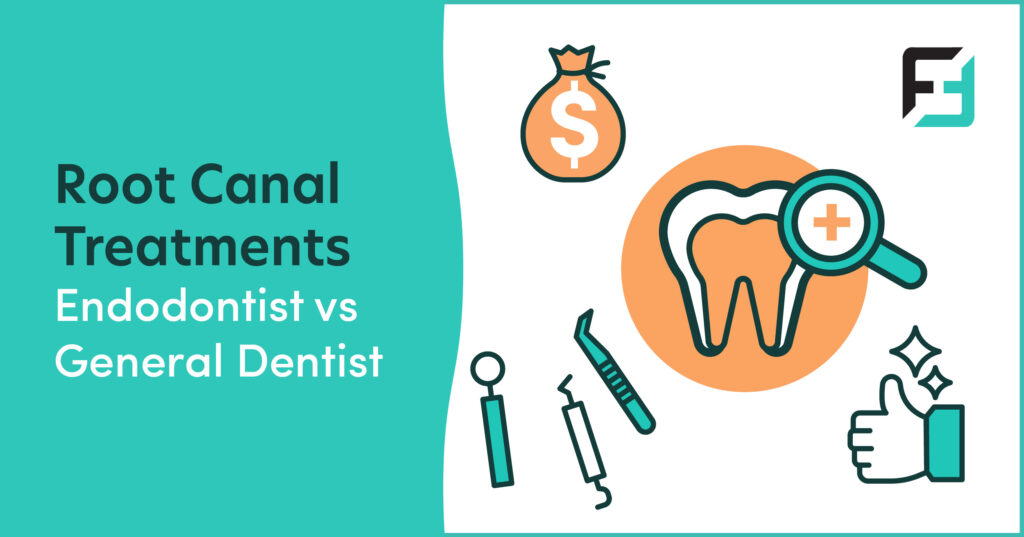Exploring the Pros and Cons of Choosing an Endodontist vs a General Dentist
Root canal treatment is one of the most common dental procedures, with over 15 million performed worldwide each year. The procedure, also called endodontic therapy, removes infected or damaged tissue from the inner part of the tooth, also known as the pulp, and fills it with a material to restore its function. Root canals are most prevalent between the ages of 35 and 44 years. Many factors can lead to infected or damaged pulp, including cracked teeth, deep cavities, or complications from a previous dental procedure. Despite their prevalence, many misconceptions about root canals and their importance remain.
Root Canal Awareness Week is an annual campaign designed to raise awareness about root canal treatment and the role of endodontics in overall dental health. While general dentists have the necessary training to perform root canal treatments, seeing an endodontist has several advantages. Endodontists are dental specialists trained to perform procedures involving the pulp and nerves of the teeth. Root canal treatment is often necessary to save a tooth that would otherwise need extracting. Tooth extractions can cause problems with chewing, speaking, and the alignment of surrounding teeth.
Despite a root canal being an endodontic procedure, general dentists perform most root canals. In the United States, general dentists perform approximately 70% of all root canal treatments. In honour of Root Canal Awareness Week, this article will explore the pros and cons of choosing an endodontist for root canal treatment.
Pros of Choosing an Endodontist for Root Canal Treatment
Expertise and Training
Endodontists undergo 2-3 additional years of specialized training to become experts in root canal treatment. Their specialized skills and knowledge allow them to handle the most complex cases with greater precision and accuracy. Due to their advanced education, endodontists have a deeper understanding of the anatomy of teeth and the surrounding structures. They are also skilled in using advanced techniques and technology to restore the tooth to its full function.
Higher Success Rate
Endodontists have a high success rate in performing root canal treatments, which could be due to their advanced training. They often have specialized equipment and techniques not always available in general dental offices. This specialized equipment and advanced technology, such as digital and 3D imaging, allow endodontists to diagnose and treat dental issues with more accuracy and precision.
Pain Management
Endodontists perform root canals more often than the average general dentist and they have more experience providing pain management. Their knowledge of the anatomy of teeth and the surrounding structures allows them to pinpoint the exact location of the affected tissue. Thus, they can minimize discomfort through local anesthesia. Endodontists also have access to sedation options that can help patients who experience anxiety or fear during dental procedures.
Comprehensive Care
Endodontists provide comprehensive care from diagnosis to treatment and follow-up care. They work closely with other dental professionals to ensure the patient receives the best possible care. Endodontists collaborate with general dentists, oral surgeons, and other specialists to develop a personalized treatment plan for each patient. Lastly, they provide specialized follow-up care to monitor the progress of the treatment and ensure the tooth is healing properly.
Cons of Choosing an Endodontist for Root Canal Treatment
More Expensive
One of the major drawbacks of choosing an endodontist to perform your root canal treatment is the cost of the procedure. Since endodontists are specialists who have undergone additional training beyond what general dentists receive, they typically charge higher fees for their services. Depending on your insurance coverage, you may be responsible for a larger out-of-pocket expense with an endodontist rather than a general dentist.
More Travel
Another potential con of choosing an endodontist for your root canal treatment is location and convenience. Endodontists are not as widely available as general dentists, and you may need to travel further to see one. Location can be particularly challenging if you live in a rural area or have limited mobility. Depending on how far you need to travel, you may need to take time off work or arrange for childcare, which can be extra burdensome.
Less Availability
Since endodontists are specialists, they may have limited availability for appointments and higher demand. Unlike general dentists, endodontist generally have less dentists on staff. Root canals can be a dental emergency and require as soon as possible to alleviate extreme pain. Thus, it can be challenging to see an endodontist if you are experiencing a dental emergency and need immediate care.
Lower Comfort Level
Finally, some patients are more comfortable seeing their general dentist for root canal treatment. Endodontists will not have the same established relationship with the patient, which may heighten their dental anxiety. While endodontists are highly skilled and experienced in performing root canal treatments, some patients may prefer to stick with their general dentist for this type of procedure.
Conclusion
In conclusion, while there are some potential cons to choosing an endodontist for your root canal treatment, you should weigh these against the benefits. Endodontists are highly skilled and experienced in performing root canal treatments and can offer a higher level of expertise and care than a general dentist. If you are considering seeing an endodontist for your root canal treatment, discuss the pros and cons with your dentist and make an informed decision based on your individual needs and preferences.



.png)
